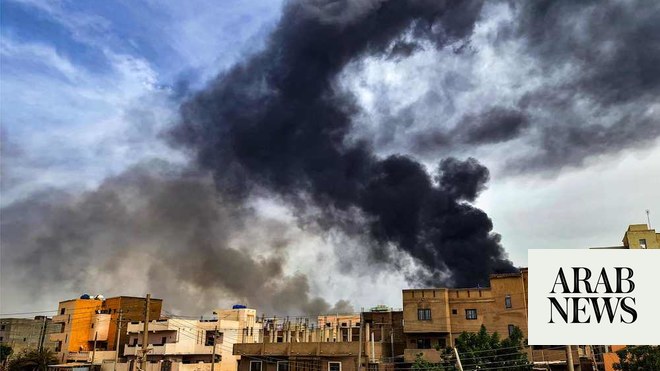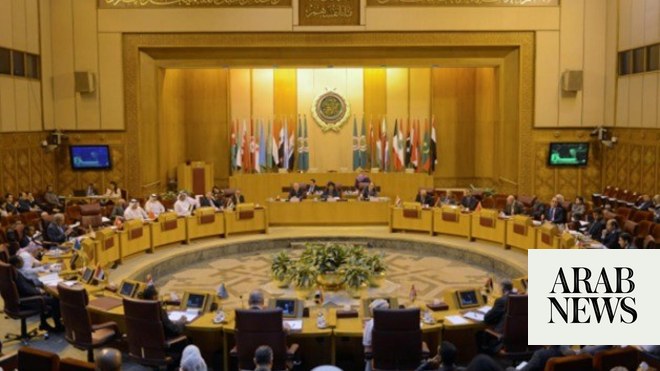
Panelists taking part in an event in Washington said political systems in Tunisia, Egypt and Lebanon are to blame for the ‘profound’ debt crises the nations face
The COVID-19 pandemic and the war in Ukraine exacerbated existing problems faced by the countries because of their weak economies, they added
Arab countries struggling with high debt and weak economies are particularly vulnerable to the political and economic shocks that can cause destabilization or even government collapse, economic experts from the Middle East and North Africa region warned on Friday.
They said politicians in such countries often wield too much power over the economy, which prevents better-qualified experts from making the necessary decisions to address and resolve the problems.
During a panel discussion titled “The Political Economy of Debt and Adjustments in Tunisia, Egypt and Lebanon” at the Middle East Institute in Washington, which Arab News attended, the experts said the political systems in the three countries were part of the reason why they have been plunged into a “profound debt crisis” or even economic collapse. The COVID-19 pandemic and the war in Ukraine had exacerbated existing problems faced by countries with weak economies, they added.
In the case of Egypt, the country is run by four groups, said Timothy E. Kaldas, the deputy director of the Tahrir Institute for Middle East Policy: The military, the presidency, state security, and the general intelligence department.
These powerful bodies “have ultimate control over the decisions that are central to the economy of Egypt, as well as the policies that have contributed significantly to its current economic crisis,” he added.
Through this monopoly they hold on economic decisions they have prevented financial experts from attempting to fix the problems, said Kaldas.
“The political economic strategy in Egypt was to leverage the state to finance their (power) consolidation, and while doing so they have established a relationship of dependency between them and Egypt’s capitalist class, where a lot of the state spending was funneled through contracts to regime-owned enterprises, particularly the military,” he added.
Kaldas painted a bleak picture of the current fiscal situation in Egypt and state spending in recent years. He said authorities had invested heavily in costly mega-construction projects that far exceeded Egypt’s needs and capabilities. The projects were “grandiose and luxurious” in a country struggling with a financial crisis and massive levels of poverty, he added.
For Egypt to move to the safe zone of economic recovery and stability, Kaldas said, the country’s political leaders need to get out of the way and allow the more capable ministers and experts to take the lead in making economic decisions.
“The state’s solvency is at risk and the ability to raise financing is coming under extraordinary strain,” he added.
He also called on Egypt’s international partners to stop enabling the kind of financial mismanagement that is undermining the country’s economic recovery.
Ishac Diwan, director of research for the Finance for Development Lab at the Paris School of Economics, said countries with weak economies, such as Lebanon and Tunisia, are at greater risk of political upheaval.
“The shock that came on a weak (economic) structure gave rise to the Arab Spring” just over a decade ago he said. In its aftermath, he added, “nothing was fixed” and nations with weak economies instead took advantage of the abundant credit available in the markets, which caused them to sink deeper into debt crises without any clear path to recovery.
Diwan said that although Lebanon had attracted billions of dollars of capital investment from abroad, the nature of its fractured political system had prevented the formation of a unified government capable of making sound economic decisions.
The capital from abroad, which mainly came from the Lebanese diaspora, was not used productively but instead consumed by the state and the public, he added, ultimately causing the economy to collapse as a result of the lack of a strategic vision among warring political groups.
In Tunisia, the situation is much the same: Politics takes precedence over economics, according to Hamza Meddeb, a fellow at the Malcolm H. Kerr Carnegie Middle East Center in Lebanon.
He said that as a result of a lack of political cohesiveness, and uncompromising coalition governments, authorities have failed to make necessary fiscal adjustments. He described the political leadership of Tunisia as “unwilling” to make hard economic and debt decisions because of the potential political and social costs to the regime.












